Hundreds gather for Hands Off! protest to express concern, dissatisfaction with Trump administration

Photo by Howard Owens

Photo by Howard Owens.


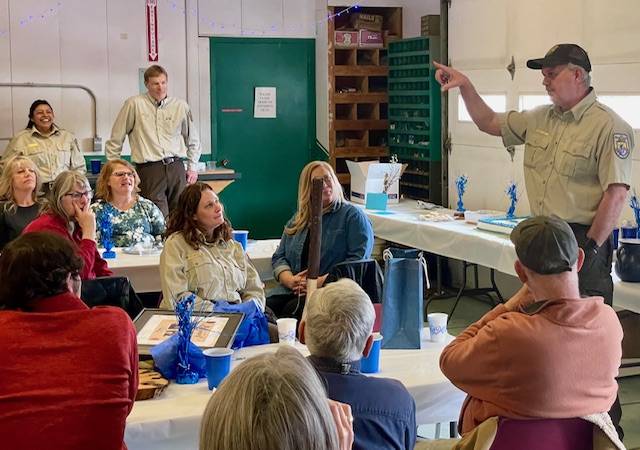
Article by Patti Singer
High on Tom Roster’s to-do list when he arrived at Iroquois National Wildlife Refuge in November 2004 was getting Swallow Hollow Trail in shape and repairing the handicap-accessible boardwalk.
“That was a very big and impressive project that had a lot of hands in it,” Roster remembered. “And then we had a big celebration at the end. No sooner were we done with the celebration and cleaning up, and there was a wheelchair going down the boardwalk. That was kind of neat to see that.”
That initial project laid the groundwork for Roster’s tenure. His formal title is complex manager, but he’s known as the refuge manager. He worked with volunteers and the Friends of Iroquois National Wildlife Refuge on maintaining the 10,000-plus acres for wildlife conservation and human enjoyment and education.
Now, after more than 20 years at Iroquois NWR and more than 37 years with the U.S. Fish and Wildlife Service, Roster is retiring in April 2025 to find new adventures with his wife and family.

“I’ll be 59,” said Roster, who had planned this day since last fall. “I still have my health and can do a lot of other things. We can travel and do a lot of stuff before anything sets in. We’re still young.”
“Tom Roster has been a steady hand at the helm of the Iroquois refuge for several decades,” said Richard Moss, president of Friends of Iroquois National Wildlife Refuge, a nonprofit that supports the refuge. “His tenure spanned at least half a dozen Friends presidents, and he will be sorely missed.”
Many of those former Friends presidents, his colleagues and family threw Roster a retirement party on March 28 at the refuge to thank him for his service.
Roster grew up in northern Minnesota in an outdoors family. His older brother worked for the U.S. Fish and Wildlife Service. “He was doing all sorts of neat things and I thought that’s a great thing to do and get paid for.”
Roster has spent more than half his life with the U.S. Fish and Wildlife Service.
His first post was in 1986 as a summer volunteer at Red Rock Lakes National Wildlife Refuge in Lima, Montana. He worked as a student trainee at refuges in Wisconsin and Minnesota before earning his bachelor of science degree from the University of Minnesota, St. Paul, in 1990. His first job out of college was as a manager trainee in Sumner, Mo. He moved to Oak Harbor, Ohio, San Diego, Calif., and Chincoteague, Va., before coming to Genesee County.
In those days, moving around was expected. “Get to know a lot of different things before you settle down to your own place,” Roster said. “So that’s what I did.”
Now Genesee County is home, even after his children have graduated from high school.
“The last graduation was 2019, and then we just decided to stick on here. There’s so much going on, a lot of fun and a lot great staff doing a lot of neat work, Friends and volunteers doing a tremendous amount of work and helping us out. The years flew by, and it’s been great.”
Roster said the volunteers help Iroquois NWR fulfill its mission of wildlife first as it has drawn about 100,000 visitors a year post-pandemic.
“There’s a lot of things that we do for the American people, whether it’s hunting, fishing, education programs, and that’s where folks like Friends and volunteers really help us out.”
Volunteers put in between 6,000 and 8,000 hours a year – about 200 40-hour work weeks. Roster said one volunteer has clocked 43,000 hours, and another had donated 28,000 hours. Their work includes mowing, trail work, education and fundraising.
“That is unbelievable that you’re working with people that have the compassion and the passion to do all of that work knowing they don’t get paid for it,” Roster said. “What they get out of it is self-satisfaction and the enjoyment that other people are getting something out of it. The people that have that selflessness and just being able to provide for other people and for the resources has been tremendous. … That deserves a big thank you for everything they’ve done over those years because that makes my life and my job a lot easier.”
Much of Roster’s 20 years at Iroquois NWR were spent at his desk, doing the paperwork and making the phone calls that ensured the refuge was at its best for waterfowl and human visitors.
He said he’ll miss coming to work on crisp fall mornings, and in spring being greeted by squawking geese, ducks and sandhill cranes.
He’ll also miss his staff and the Friends and volunteers — “all the things they do and all the camaraderie. We got projects done and provided for the visitors and resources. The biggest part will be missing those folks.”
It's not too late to register for an informative session about becoming a school board member, says Patrick Burk, executive director of the Genesee Valley School Boards Association.
This is for anyone with interest about serving on your local Board of Education. Local experts will answer questions as well as provide insight into what it is like to be on a board, and prepare you for what to expect when you are elected.
The session is at 6:30 p.m. Monday at Genesee Valley BOCES Center, 80 Munson St., Le Roy.
Mandatory Trainings will be covered and expected duties and responsibilities will be discussed. There will be plenty of time for questions and answers.
"Join us for this informational session," Burk says.
Register at: pburk@gvboces.org.
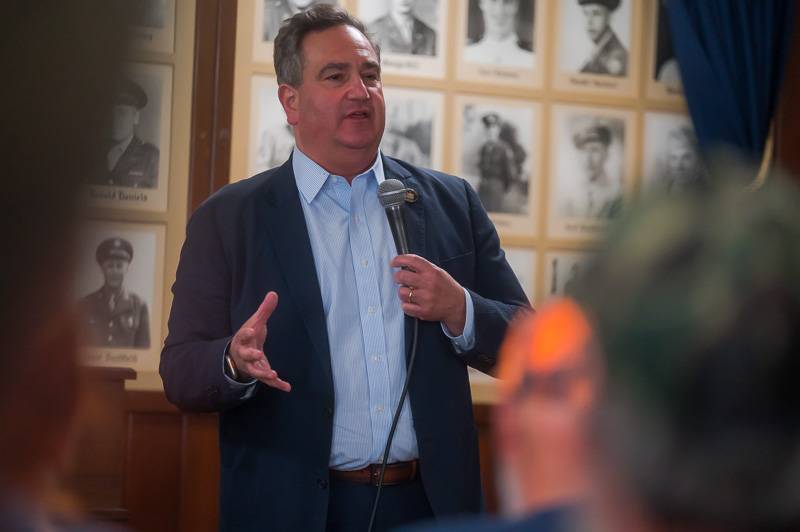
Senator George Borrello has sent out postcards inviting folks to join him for a town hall meeting later this month to hear about the latest updates on state and local issues.
The session has been scheduled for 6 p.m. on April 23 at 10569 Alleghany Road, Darien Center.
Borrello represents the 57th Senate District, which includes Cattaraugus, Chautauqua, Genesee and Wyoming counties as well as the western half of Allegany County.
Everyone in the community is welcome to this event. This will also be a time for attendees to share their questions and comments on the material stated.
To contact the senator, email borrello@nysenate.gov or go to borrello.nysenate.gov. His Batavia office hours are noon to 4 p.m. or by appointment at Cornell Cooperative Extension, 420 E. Main St., Batavia, or call 585-507-8139.
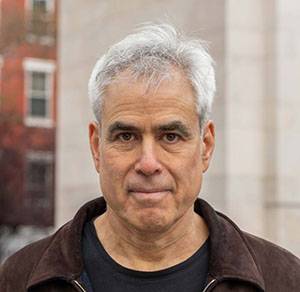
Have you ever caught yourself as an older adult regaling youngsters with stories of when you were a kid, and how you would spend hours outside playing, finding your own entertainment, and maybe even getting into mischief a time or two?
That’s not so likely with kids nowadays, Roula Alkhouri says, and hasn’t been for quite some time since smartphones came on the scene. These high-tech devices, while useful and convenient, introduced another level of safety that years of research later has proven otherwise, Alkhouri said, citing Jonathan Haidt’s book “The Anxious Generation.”
“I have a daughter who's 25, and she grew up around that time when the smartphones were coming in, and I was like, I wish I had known all of this. Of course, we didn't when they first came out, all the over-parenting, like, 'Oh, you can't go anywhere,' because the fear of strangers and all of that. Comparing it with my growing up years, and how we went out and ventured out and did things, and nobody was checking up on us every second,” she said to The Batavian. “So between those two factors, and I heard about the book, I was like, wow, this is pretty good. I was talking to a friend who works with youth as well. She lives in Ohio. She's a youth pastor, and she was telling me, oh, you know, all these young people, they really struggle, and she said ‘you may want to read this book,’ so I got the book, read it, and started getting into all the research.”
That led Alkhouri, a parent and pastor at First Presbyterian Church in Batavia, to check in with parents at her church to see if there was interest in having a more structured conversation about this topic, and it was a resounding yes.
The church is hosting a workshop this weekend for parents, grandparents, and other concerned adults about the negative impacts of social media and overprotective parenting on the mental and social health of children. This is based on Jonathan Haidt's New York Times best-selling book “The Anxious Generation: How the Great Rewiring of Childhood Is Causing an Epidemic of Mental Illness.”
It’s set for 2 p.m. Sunday at the church, 300 E. Main St., Batavia.
A phenomenon called protective parenting grew heavy in the 1990s, when everything had to be monitored by parents, until the dawning of smart phones, and then those parents said “have at it,” Alkhouri said.
“We didn’t police that as we would have policed the content of, say, a gathering for kids. The kids are isolated, in terms of, they don’t really do as much play, unless it’s supervised with adults all the time, and then the social media and the phones, they had access to the Internet all the time, where before 2010, they had to be sitting at a desk,” she said. “There was something where you could have had some control over it, like a TV, but not all the time, but this is with them all the time. A couple of factors came together between that fear of the parents and saying, ‘Oh, it’s safe. They’re sitting at home, and they can be on their phone.’ Well, very, very misleading. We don’t know what content they’re getting exposed to.”
She’s not just talking about the potentially bad content out there but also everyday posts that can prompt kids to compare themselves to popular influencers, producing self-esteem and confidence issues, she said. All of this can lead to — and has, in alarming numbers, according to Haidt, a social psychologist at New York University’s Stern School of Business — anxiety, depression, self-harm, substance abuse, and suicide.
While many school district officials have discussed the possibility of restricting or banning the use of cell phones in the classroom and debating the positives and negatives for doing so, Zach Rausch has culled the statistics and effects of long-term use for adolescents to teens, cited in Haidt’s book.
For example, of rates per 100,000 in the United States, emergency department visits for self-harm in girls ages 10 to 14 in the United States shot up from just over 100 in 2000 to 634 in 2021; visits for boys remained fairly stable, with a slight uptick to 134. The stats for boys changed dramatically for suicides, going from eight per 100,000 for ages 15 to 19 in 1970 to 18 in 2020 and falling to some 14.83 in 2021, with girls remaining under five those entire 50 years.
This weekend’s discussion will include the book's central arguments, exploring:
“We rewired childhood and created an epidemic of mental illness,” Haidt says. “After more than a decade of stability or improvement, the mental health of adolescents plunged in the early 2010s. Rates of depression, anxiety, self-harm, and suicide rose sharply, more than doubling on many measures.”
Haidt said that he wrote the book because he believes the challenges confronting children and families “are solvable.”
“However, addressing these challenges requires understanding the traps we have fallen into, so we can see the escape routes,” he said. “The main escape routes are four new norms: delay smart phones until high school, delay social media until 16, phone-free schools, and more independence and play in the real world. The solutions are simple, but the work is hard. It’ll be easier if we act together.”
Organizers want this discussion to foster a thoughtful and open exchange of ideas, allowing participants, regardless if they have read the book or not, “to share personal experiences and observations and consider practical steps for creating healthier environments for young people.”
For more information, call 585-343-0505 or go HERE.

A group of folks, led by Diana Kastenbaum and Millie Tomidy-Pepper, have gotten together to begin doing something instead of just fretting and wondering individually about the actions being taken by the White House administration and how those things might affect citizens.
They formed Concerned Citizens of NY-24, and town halls have broken out already in various parts of the state, including Canandaigua and Geneva. One has been scheduled for 7 to 9 p.m. on April 15 at the Arc GLOW Community Center, 38 Woodrow Road, Batavia.
“The one we did in Geneva was on healthcare and Medicaid … there was a panel of four, and we thought maybe we would have 10 people," Kastenbaum said to The Batavian. "Over 400 showed up in Geneva, at the opera house. We call ourselves Concerned Citizens of NY-24 just because we don’t want it to be partisan. We really want to bring in everybody because it’s going to affect everybody.”
Congresswoman Claudia Tenney has been invited to discuss recent federal actions and policies with a panel of community members in various fields of social security, Medicare, healthcare, Medicaid, agriculture, small business, veterans, and education.
Kastenbaum, of Batavia, is no stranger to politics and civic engagement, having run against former Congressman Chris Collins and for a seat on City Council in the past. This event is not meant to have a Democrat or Republican slant, however, as she and her co-organizer encourage people of any affiliation to attend, ask questions, and hopefully leave with more information than they had at the beginning.
“We really just want some answers,” she said. “And the reason I got involved in it is because people kept saying 'well, we should have a town hall,’ and I said I wanted to work on a town hall, so then people started to reach out and said, ‘well, what are you doing on it?’ So I just sort of took the lead.”
This is a public forum, so come and engage in the discussion, she said. Sample questions include:
Topics are anything that the federal administration has been doing that has or might affect citizens, including ongoing deportations, tariffs (re-enacted internationally on Wednesday), the stagnant or rising cost of goods, thousands of federal employee layoffs, agency reductions or closures, and freedom of speech issues.
“We’re encouraging people to come and ask questions and share their stories,” Kastenbaum said.
The community center has an occupancy limit, so attendees are also urged to get there before the event begins.
Organizers had not yet heard back from Tenney but “would love to have her attend,” Kastenbaum said.
Tenney’s office did not return The Batavian’s request for comment about the event as of Wednesday night.

A fun spring event that began during the pandemic has been going strong every year since, and organizers invite children of all ages and their families to this year’s Easter Egg Hunt once again.
Free and open to all, it is set for 11 a.m. to 12:30 p.m. Saturday at First Presbyterian Church, 300 E. Main St., Batavia.
“We are joining with St. James Episcopal to put this together. This event started during COVID for us in an effort to help children get out in the community and experience something joyful,” the Rev. Roula Alkhouri said. “Now it has become a way to help the families in our community to experience a fun event around a special holiday for us. We invite children to bring their baskets to celebrate the joy of Easter with a noncompetitive egg hunt for children of all ages.”
There is to be:
For more information, call 585-343-0505 or email fpcbatavia@fpcbatavia.org.
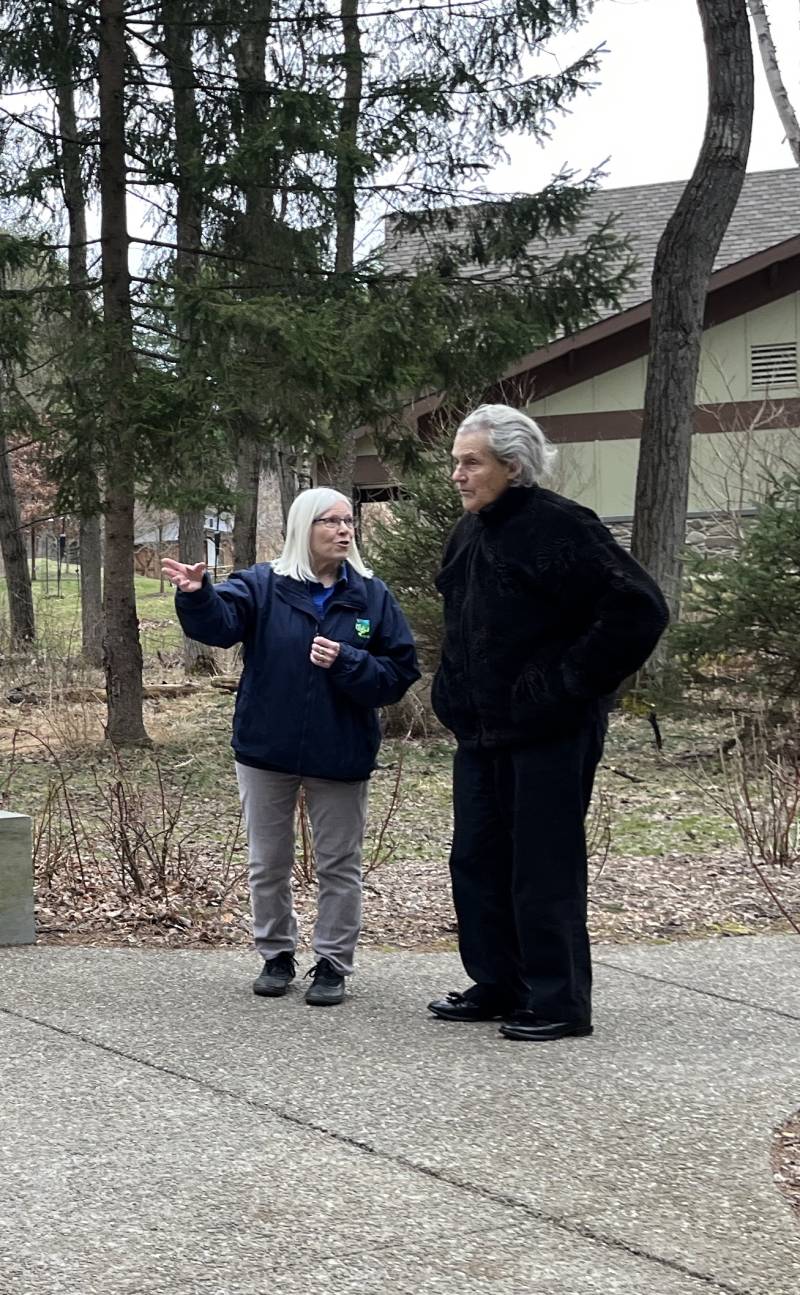
Loren Penman says she’s had a full-time, unpaid job for the last 10 years, yet it has no doubt been worth every minute of labor.
A catalyst for the Autism Nature Trail (lovingly referred to as ANT) at Letchworth State Park and Genesee Commission representative on the New York State Council of Parks, Penman of Batavia was one of the first organizers who reached out in 2014 to Dr. Temple Grandin, a professor of animal science at Colorado State University, and world-renowned autism advocate.
The trail has not ever been part of the state budget, which created a hurdle from the start.
“She said you have to raise the money yourself,” Penman said. “We had to raise $2 million in cash first. We’ve raised $4 million to date.”
The money has come from individual donations and small grants from companies, she said. Penman is proud that ANT has not taken “a penny” from taxpayers or any government entity, she said.
After a series of phone calls, emails, planning, designing, fundraising (lots of fundraising), building, staffing, and endowing over the next seven years, the ANT became a reality, and Grandin, who couldn’t make the ribbon cutting during the pandemic, promised that she’d visit in 2025. A few days ago, she kept her promise. The professor visited Letchworth and gave a talk at SUNY Geneseo.
Penman, a retired long-time administrator and teacher at Batavia City Schools, credits Grandin’s role for the success of the trail. Many school groups have visited since it opened in October 2021, she said.
It was during Penman’s stint as middle school principal that she could especially appreciate the layer of difficulty that an autism spectrum disorder would have added to middle school angst.
“Middle school is a horrible time for kids. Imagine having autism on top of that,” she said.
That was something that registered with her in the 1990s, she said, so when an opportunity arose to bring a sense of peace to folks, she and the late Susan Herrnstein of Silver Lake pursued it with gusto.
They described to Grandin the idyllic setting of Letchworth — the flowing water of Genesee River, an abundance of pine forests — and how the majestic scene of Mother Nature amplified calming effects for many visitors, especially for those with autism.
Grandin carved out parameters for what the trail should be or have:
In response, organizers followed her recommendations, including to resist funding offers to build a trail in Rochester, opting to remain with Letchworth park; created 38 trail markers and a consistent stone use trail surface; developed Alone Zones at key places along the trail; partnered with Camp Puzzle Peace for its nature-loving staff and experience with autism.
There are also cuddle cocoons, wooden gliders, a sensory station with moss, bark, pine cones, nuts, grasses, animal bones, rocks and feathers; ANT-specific guides to facilitate body movement and communication skills; and a video drone tour of the trail on ANT’s website.
Grandin is more than an expert on the spectrum, as she deals with it personally in her everyday life. An esteemed educator, advisor to the animal science industry, and author of several books, she serves as “an inspiration for parents wondering ‘what’s going to happen to my kid?’” Penman said.
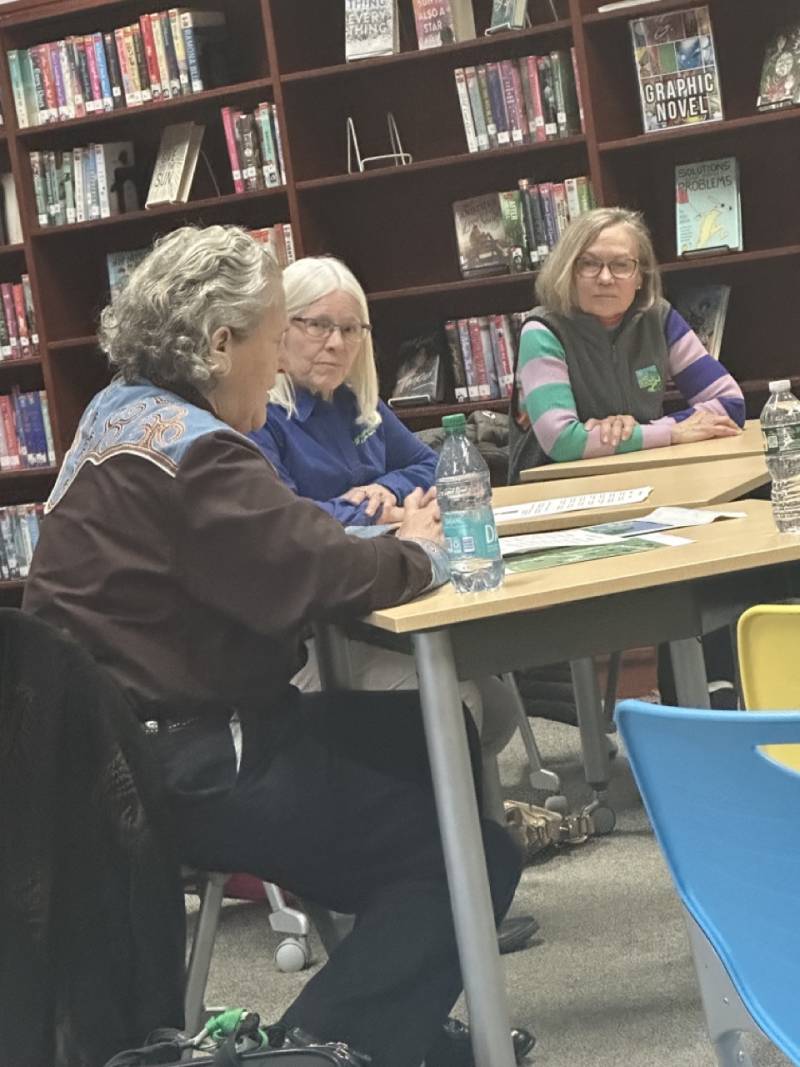
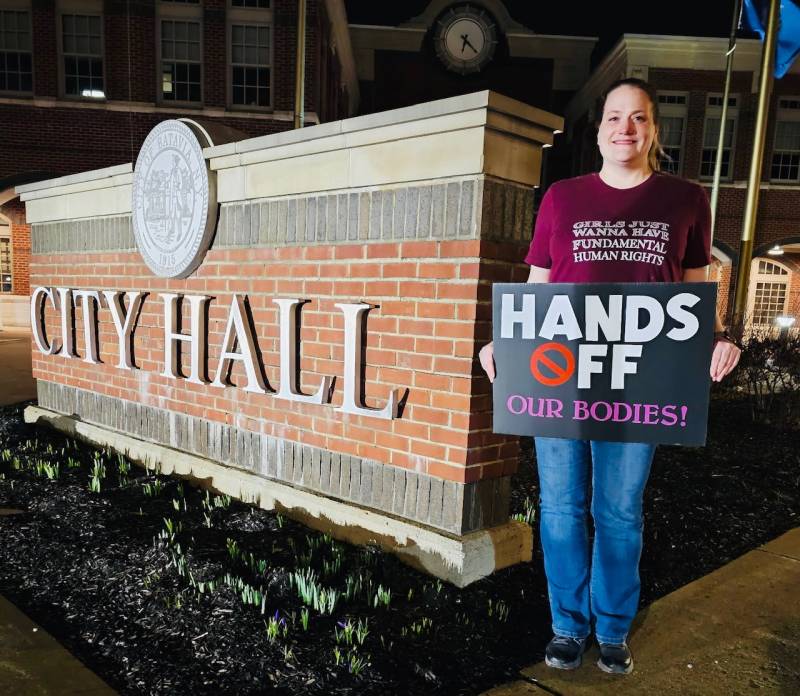
Sarah Wolcott doesn’t describe herself as a political activist, but she was willing to jump into her first protest with both feet — as participant and organizer.
The Batavia resident said she has watched society erode the last several years and decided to jump in with some civic-minded adhesive.
“I’m definitely brand new to this whole thing. I think my interest in current events kind of fueled this particular event, but I’ve kind of had my mind and my interests kind of leaning more towards being involved more in my community, and trying not to be silently complicit any more,” Wolcott said Monday to The Batavian. “I have a little group of local people in the GLOW region that have kind of started to get together, and just listening to them talk, and just other neighbors and family, people like that. I just felt like I want to do something, and I happened to stumble across this hands off movement, and it sounded exactly what we’re kind of looking for, as far as trying to get involved in something that kind of touches on, it’s Hands Off insert whatever cause you support kind of deal.”
The Hands Off! protest will be from noon to 2 p.m. Saturday outside of City Hall at 102 Main St., Batavia. This is one of hundreds of similarly themed protests across the country this weekend, from California and Texas to Colorado and Mississippi to Florida and Pennsylvania, and up and down the East Coast.
Wolcott invites all to attend for whatever cause you support that the government has its hands on. “You feel they shouldn’t,” she said.
There is a clear focus on President Donald Trump and Elon Musk, who “think this country belongs to them,” according to the material.
“They're taking everything they can get their hands on — our health care, our data, our jobs, our services — and daring the world to stop them. This is a crisis, and the time to act is now,” it states. “This mass mobilization day is our message to the world that we do not consent to the destruction of our government and our economy for the benefit of Trump and his billionaire allies. Alongside Americans across the country, we are marching, rallying, and protesting to demand a stop the chaos and build an opposition movement against the looting of our country.”
Batavia’s event is to be a peaceful one of people carrying signs and walking in front of City Hall, Wolcott said. Suggested signs begin with Hands Off and finish with a cause important to you. For example, Wolcott’s statements may include Hands Off reproductive rights or Hands Off free speech.
“We want the current administration and local government to know we want hands off our government and that they work for us, so we want them to know that we’re listening that we’re paying attention,” she said. “It’s a peaceful protest. We want people to come and bring their signs and be a visual presence on sidewalks.”
She has noted a gradual emotional build-up since the first Trump administration in 2017 and “how much more the country is getting divided, and how worse it seems to be getting.”
“As the days go on, that Trump’s really not, in my opinion, helping that situation,” she said. “And so I was just trying to find a place where we all have some common ground and maybe start bringing people together and work for change, versus us trying to be working against each other.”
As the political climate has heated up, there haven’t been many local outlets for this type of expression, and Wolcott has received feedback that people have wanted it, she said.
“Just in the past couple of weeks since organizing this event, I have heard from a tremendous amount of people in just my local community how grateful they are that I’m organizing this,” she said. “Because they’re scared and they’re frustrated, they’re worried. Maybe people, especially in my community, the GLOW community, don’t feel so alone, and maybe it can be the spark that starts more things happening, even if it’s just locally.”
A core principle behind all Hands Off! events is a commitment to nonviolent action. All participants are expected to de-escalate any potential confrontation with those who disagree with their values.
For her first event, Wolcott is proud to have garnered more than 130 registrations as of Monday afternoon, and is looking forward to a successful gathering. Participants are encouraged to register ahead of time, but are welcome to attend if they haven’t.
To register and get more information, go HERE.
Check out handsoff2025.com for more details, including about signs and a map of locations.
UPDATE: Starks has been located and is safe.
Press Release:
The Batavia Police Department is seeking public assistance in locating a runaway 14-year-old girl. Za'mya Starkes was last seen on 03/28/2025 in Batavia, NY.
She was wearing a black hooded sweatshirt, and blue sweatpants with a white stripe. Za'mya is about 5'08" and 150 pounds with dark brown hair and brown eyes.
Anyone with information on her whereabouts is asked to call the Batavia Police Department at 585-345-6350 or the NYS Missing Persons Clearinghouse at 1-800-346-3543.
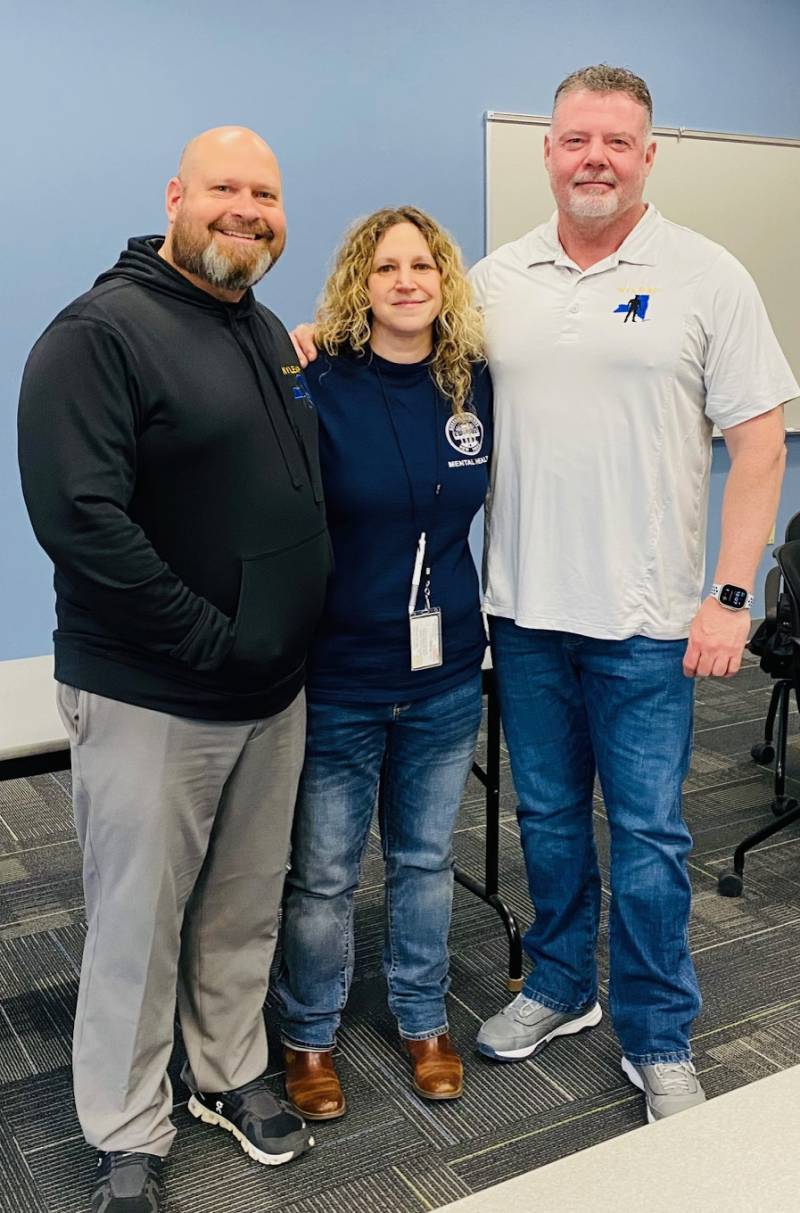
Jim Banish would probably give anything not to have the story that serves as a foundation for his nonprofit first responder training efforts, yet he has promised his family and himself that brother Joey didn’t die in vain.
Banish, a former police officer for 27 years and founder of New York Law Enforcement Assistance Program (NY LEAP), used the tremendous pain of his brother’s death by suicide as the impetus for doing what he could to improve the mental health and wellness of active or retired law enforcement members and first responders.
“I really want to offer them hope, I want to offer them knowledge, and I want to offer them a platform where they can go and get the help that they need themselves to live a long and healthy, happy life. Our life expectancy in law enforcement is 58 years old; it’s about 20 years less than the national average, and I don't think that's fair,” Banish said to The Batavian after a workshop Friday at Genesee County’s Emergency Management Training Center. “So my ultimate goal is to really bankrupt the retirement system with retired cops. But I want to give them hope, and I want to give them light, and I want them to know it's okay not to be okay, and you can go get help and break that stigma and make sure that they're not getting punished for asking for help.”
He and co-presenter Andy Carrier drove up from Georgia to talk to the class of nearly two dozen people from the county Sheriff’s Office, Dispatch Center, Batavia City Police, Department of Corrections, Emergency Management, and Mental Health.
They talked about the compounding effects of dealing with crisis and the physiological effects of trauma, including heart disease, panic attacks, irritable bowel syndrome, nausea, fatigue, and hippocampus shrinking and hardening.
“PTSD (post traumatic stress disorder) is now a line of duty injury,” Banish said. “It has a physiological effect. With trauma, it has a hippocampus injury. When we’re exposed to the amount of trauma that we’re exposed to, it hardens the lining of the hippocampus.”
These effects can be proven with an MRI test, he said, and is “a physical injury.” The good news is that it can also be reversible with treatment.
Banish, who grew up in Buffalo, knows about how trauma can affect a person. His brother had been with the New York State Police for 15 years when he ended his life. It was not only inconsolable grief for the family, but guilt that Banish suffered with for years afterward, he said.
“The day was April 1, 2008, which was the day my brother went home at lunch and shot himself and took his life with me responding to that scene shortly thereafter it happening,” Banish said. “It left me with a lot of questions and a lot of hurt and a lot of pain in my life. And I had been a police officer at that point for 10 years, and he had 15 years on, and ascended to the rank of lieutenant, he was moving up pretty quick.”
Through his own struggle while self-medicating and isolating for the next few years, Banish discovered that there wasn’t much out there in the way of resources for police officers when they especially needed it, he said.
“I wanted to start helping other police officers after I got help. I didn’t realize that it also encompassed corrections officers and dispatchers and fire, because they all see so much trauma, we all do in this field of first responders,” he said. “So after NY LEAP got launched —in 2017 — we started hosting post-critical incident seminars around the state. We started training other people to do what I was doing and to train them to be good peers and to get them the resources. Then, I started working with different clinicians throughout the state. And then I started going around the country, and I’ve been as far as California and Louisiana and all over the country to help spread the word.”
He and Carrier reviewed signs of distress, including an increased consumption of alcohol to self medicate; restless nights or days, depending on one’s work shifts; problems at work and not performing well; constant agitation; lashing out at others; destruction of home life and pushing loved ones away while isolating; and deep depression.
While those signs are being felt and exhibited, the officer or responder may also struggle with not knowing where to go for help or the potential repercussions for doing so, they said. There’s a fear of being fired, how administrators and co-workers may treat you, that firearms may be taken away, placement in a mental health facility, and/or of not knowing who to trust.
Current law enforcement culture is that:
In addition to addressing suicide and PTSD, NY LEAP staff also aim to reduce the rates of divorce, alcohol abuse, cumulative stress disorder, anxiety, and depression. Evidence-based techniques and services are provided through education and training to help first responders live healthier and happier lives and be more productive and effective at work, the material states.
Healthy officers and responders are better equipped to improve relationships with the communities they serve, which in turn helps to create cost savings for departments. NYLEAP was created by peers, for peers, to help fight the stigma associated with first responders asking for and receiving help by having open conversations about mental health and the impact of trauma, the material states.
“The statistics are continuing to grow at alarming rates in terms of number of deaths by suicide; along with the frequency of PTSD, cumulative trauma, alcohol/substance use disorders, and other mental health concerns that may be caused by the day-to-day stress and trauma from the job,” it states. “In 2022, the number of reported deaths by suicide in law enforcement outnumbered felonious line of duty deaths by near triple rates. Our goal is to equip officers and first responders with the tools needed in order to provide individual and group peer support within their own agencies and with other responders throughout the state.”
Banish and Carrier recommended several books, including “Emotional Survival for Law Enforcement” by Kevin Gilmartin, “Man’s Search for Meaning,” by Viktor Franks, and “Invisible Heroes,” by Belleruth Naparstek.
The duo was excited to announce the debut of Valor Station, a behavioral health treatment center exclusively for first responders seeking help for mental health issues, to be opening Monday in Augusta, Ga. The goal is to open other sites throughout the country in the future, Banish said.
“It’s about us creating a place for us,” he said. “It’s built by first responders for first responders. It has taken a lot of time and effort. We’re gonna take care of each other and keep this going.”
His parents took a recent tour of the place and were greeted with a large memorial photo of their beloved late son Joseph, alongside his framed uniform. That’s a reminder for all that this young lieutenant’s life meant something, and he did not die in vain, brother Jim said.
“I promised my parents he won’t be forgotten,” Jim said.
Genesee County Mental Health Director Lynda Battaglia invited NY LEAP to offer the workshop as an overview of what officer wellness is, and to spotlight the very real need out there to take care of this county’s first responders, she said.
“What they see every day, what they respond to every day, builds up day after day, week after week, year after year, and a person can't carry that alone. They have to be able to process what they have seen and what they've been exposed to, and the only way to do that is by talking about it,” Battaglia said. “So talking with mental health, talking with a peer, somebody that's walked in their shoes, a clinician who understands, knows how to process trauma, I want to highlight officer and first responder wellness in the county because it's extremely important. We need it.”
Battaglia said she feels this topic overall is off to a good start, with officer wellness programs having already begun at the Sheriff’s Office and Batavia Police Department, and now this mixed group of attendees. As Carrier emphasized to them: “I want to let first responders know that it’s okay to get help.”
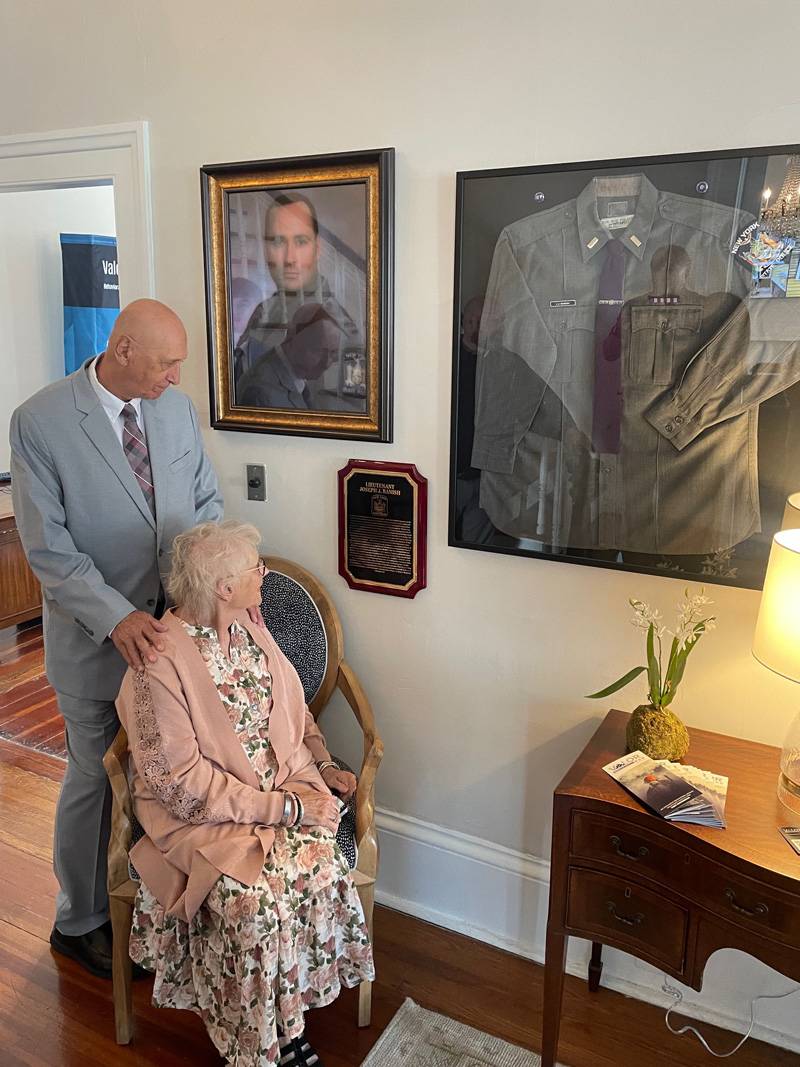
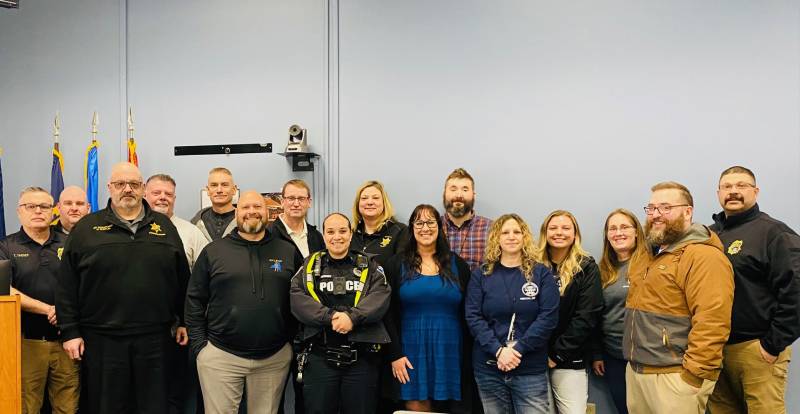
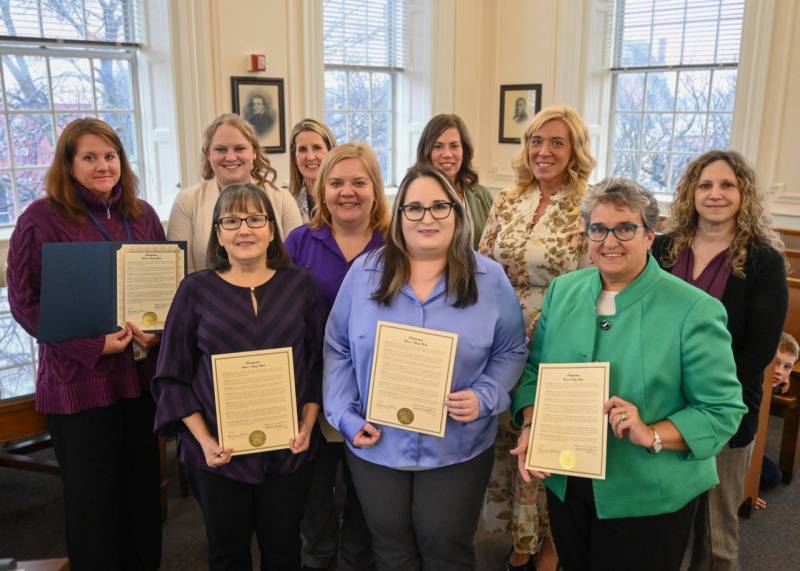
American women of every race, social stratum and ethnic background have made historic contributions to the growth and strength of our nation in countless recorded and unrecorded ways.
And so begins the proclamation that Genesee County's Legislature presented to a group of county women leaders Wednesday as symbolic support and awareness of the contributions made by women to society over the years.
The proclamation continues:
WHEREAS, American women have played and continue to play a critical economic, cultural, and social role in every sphere of the life of the Nation by constituting a significant portion of the labor force working inside and outside of the home, and
WHEREAS, American women were particularly important in the establishment of early charitable, humanitarian, and cultural institutions in our Nation, and
WHEREAS, American women have been leaders, not only in securing their own rights of suffrage and equal opportunity, but also in the abolitionist movement, the emancipation movement, the industrial labor movement, the civil rights movement, and especially the peace movement, which creates a fairer and just society for all, and
WHEREAS, each department within Genesee County includes influential women whose dedication, expertise, and leadership continue to strengthen and empower women by, demonstrating resilience, innovation, and commitment to excellence across all sectors.
Now, therefore, be it RESOLVED, that the Genesee County Legislature resoundingly embraces Women’s History Month. Their continuous contributions made to Genesee County captures the spirit of women’s determination and clear, forward thinking by demonstrating creativity, courage and forging career paths for women of all levels of society.
BE IT FURTHER RESOLVED, the Genesee County Legislature proclaims March 2025 as “Women’s History Month”. A month to take notice and appreciate the hard work women have done, and continue to do.

With a theme of "It Starts Here," this year's recognition of National Public Health Week placed emphasis on the importance of "making a difference in our homes, communities, and state."
Genesee County legislators took a few moments during their Legislature meeting Wednesday to underscore that importance with a proclamation for the contributions of public health professionals and highlight important health issues that impact local communities.
Legislator Gregg Torrey read the citation for the upcoming week in April, which stated in part:
WHEREAS, public health initiatives, including chronic disease prevention, communicable disease prevention, environmental health, health education, emergency preparedness, and efforts to address health disparities, play a crucial role in improving quality of life; and
WHEREAS, National Public Health Week provides an opportunity for residents to learn about key public health concerns and success stories that are essential to building a healthy community. These efforts include immunization programs, nutrition education, maternal and child health programs, safe housing initiatives through the Lead Poisoning Prevention Program, mental health promotion, substance use prevention, disease surveillance, rabies prevention through vaccination clinics, smoking and vaping education, and strengthening community resilience through emergency preparedness; and
WHEREAS, collaboration between government agencies, healthcare providers, community organizations, businesses, and individuals is essential to addressing public health challenges and building a healthier future for all; and
WHEREAS, the residents of Genesee County recognize the essential role public health plays in their everyday lives, and we commend the dedication of public health professionals, first responders, and community partners who work to protect and promote the well-being of all.
Now, therefore, be it RESOLVED, that the Genesee County Legislature hereby proclaims April 7-13, 2025, as Public Health Week in Genesee County and encourages all residents to participate in activities that promote health and wellness in our community.

Angelina Pellegrino is at it again, and she’s looking for fellow spring cleaners, donors, and volunteers able to help out with her fifth annual yard sale to benefit Habitat for Humanity.
Pellegrino, a city resident and recipient of a Habitat home, has been throwing the yearly yard sale party on her own as one way to pay forward her gratitude for having been part of the nonprofit’s program. So, she, in turn, hosts the sale at the residence that she and Habitat staff worked on to make her home dreams a reality for her own family.
“The sale starts Friday, May 16th, through Sunday, May 18th, from 9 a.m. to 5 p.m. As always, all proceeds go directly to the next family,” she said. “Now that everyone will begin to spring clean, please consider donating your items to this fabulous benefit. We accept items such as clothing, shoes, housewares, household items, books, etc. Any and every donation is greatly appreciated.”
Items may be dropped off any time on the front porch of 150 State St., Batavia, or pickups can be arranged (except for large items such as chairs, tables, etc.), she said. Those larger items, including end tables, bikes, TVs, can be dropped off at her home from April 22 through May 14, when storage will be available.
“This year we are desperately looking for volunteers to help set up on Thursday, May 15. That is the day we mostly need as many hands on deck to get it all organized. We are also looking for volunteers to help with the sale itself,” she said. “Whether you are a retiree, or a student that needs to put in volunteer hours, or someone who works at a business that allows a day to volunteer for an organization, we would so appreciate that.”
There’s some added fun this year of face painting for kids, with design choices for a $5 donation that will go to Habitat for Humanity. If you’re artistic, Pellegrino is also looking for some people to help out with the face painting activity, which is scheduled from noon to 2 p.m. Saturday and Sunday, May 17 and 18 during that sale weekend.
“I urge everyone to help make this year great, as this is a wonderful program right in our community,” she said. “Please reach out to me, Angelina Pellegrino, any time via text or phone call at 585-356-4867 with any questions regarding drop-offs, pickups or volunteering.”
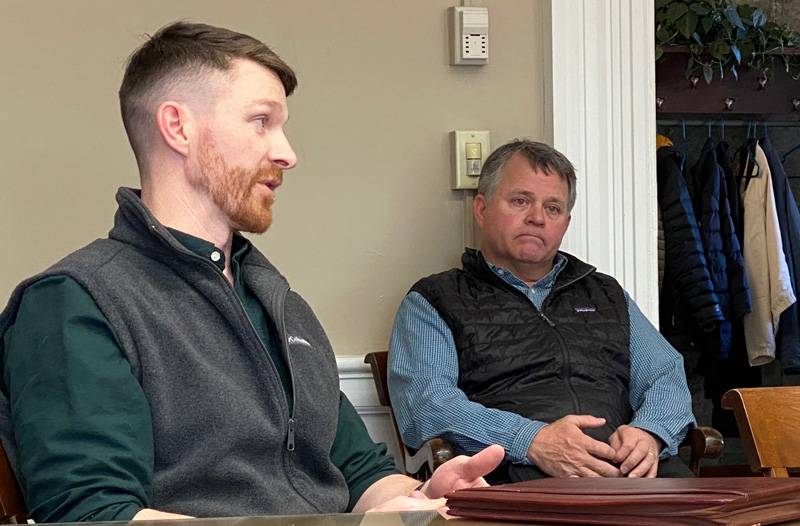
An overload of phosphorous — a nonmetallic chemical element that becomes a waxy solid material that glows in the dark at room temperature — has gained the attention of the Genesee County Soil & Water Conservation District, Senior Field Manager Jared Elliott says.
Elliott reviewed a five-year study at Oak Orchard Creek with county legislators earlier this month, and the county Legislature, in turn, approved $173,851 in funding toward the project and an additional staff intern position.
Legislators approved funding of $151,891 and $21,960 to support the staff position during their meeting Wednesday, for the total to be paid in regular installments through Dec. 31.
“We're working with Orleans County and SUNY Brockport. The goal is to collect data, analyze the creek some more, and potentially get a watershed management plan in place for that area. Oak Orchard is extremely impaired with phosphorus, and we need to find out where that's coming from so we can do a plan,” Elliott said during his annual report review earlier this month. “Some of it's probably from point sources. There's a lot of wastewater treatment facilities. There's municipal plants, and then the Nortera facility and the U.S. chips and facilities in Oakfield. Some of it's agriculture. Some of it's natural. The watershed could just be high and phosphorus coming out of the bedrock.
“We can narrow it down between a study and some modeling. The plan that we're going to work on is going to be probably a nine-element plan, which really focuses on, it ends up focusing on agriculture and supports grants to help with the agricultural sources, because the point source is something that's already regulated, so there's already a mechanism to reduce that. And agriculture is kind of low-hanging fruit in those areas, as far as something we can actually have an impact on,” Elliott said. “The other component there is with the solar farms that are going to be in that area, we're going to be kind of finding out how that's going to impact the hydrology and different things in that watershed, too.”
Other areas of focus for the agency have been to introduce its hydroseeding program into more municipalities, he said. According to his annual report, the District provides technical assistance to municipalities and landowners with financial support from the Finger Lakes-Lake Ontario Watershed Protection Alliance.
Hydroseeding is a method of planting grass and other crops using water, seed, fertilizer, and mulch sprayed onto the soil surface using specialized equipment, often for erosion control and quick vegetation establishment.
This Alliance funding is available to the District annually, is split between technical and financial assistance, and is a consistent funding source to support staff time, supplies, and training. In 2024, the District hydroseeded projects for the towns of Alabama, Batavia, Byron, Darien, LeRoy, Pavilion, Pembroke, and Genesee County. Approximately 13 acres of disturbed soil were stabilized with the hydroseeder.
“It grows a little bit every year. We work with new towns. We do more acreage. That's really been a point of emphasis, and that's opened the door to grant projects with a lot of these towns,” he said. “So we have a culvert replacement project scheduled for this year with Le Roy; we're talking to the town of Alabama about helping them replace their salt storage. So this hydro seeding program with the machine that the county helped us buy is kind of opening those things up for other non-ag work in the county. We do a lot of work for the county too.”
The District’s workload is increasing significantly in 2025 with several new grant projects and an added Japanese knotweed treatment program, he said in his report. Revenue sources have been steadily increasing recently, and the agency currently has no annual costs for the facilities that are used, because the U.S. Department of Agriculture currently pays rent on the office space occupied by the District.
However, this agreement could change with the cuts to the federal government, which would have budget implications for the District, he said.
“So I wouldn't expect our budget from the state to go down necessarily. We've seen fairly steady increases of the last four or five years, and I would expect that to continue for expenses. We're not really planning any major changes trying to maintain that five full-time staff right now, so we would see expenses climbing slightly just to accommodate gaining staff experience and insurance costs,” he said. “And then the only real concern that I have moving forward is we are co-located with the federal government. There's a lot of uncertainty about our office space. There's talks of reorganization and a lot of things potentially happening. So there could be a scenario where we would have to be looking for office space to lease something, but that's really our only concern, budget-wise.”

A streetscape plan for Bank Street in downtown Batavia is gradually coming to fruition, albeit with fewer carbs than what was originally on the menu, City Manager Rachael Tabelski says.
The “traffic calming and streetscape enhancements” that have been studied, surveyed, and even laid out visually for folks to check out more than a year ago along the section of Bank Street between Main Street and Alva Place have gone out for bid, with the lowest coming in at just over $1.1 million, Tabelski said during this week’s City Council meeting.
“Because of the cost measures, it’s very pared back. There will be curbing; I call it a road diet. There will be turning lanes as well,” Tabelski said. “As many of you are aware, the city was awarded a TAP grant to make improvements along Bank Street from Washington to Main. After public input, design and engineering, the project has been bid, the bidder was Keeler Construction. The TAP grant will pay $945,000 roughly, and the city can use CHIPs money for the remainder of the project for $548,000.
“The split is about $371,000 of engineering, $1.12 million of construction. This is a bit higher than we anticipated when we got the estimates for the project three and a half years ago. So we will be using more CHIPs funding than we originally anticipated,” she said. “We really don't want to delay this project in any way because with the police station finishing up, the YMCA finished, we want to get in there and do that sidewalk streetscape project to kind of finish that block. So we are recommending to move this forward.”
Keeler Construction Company of Albion's bid was $1,121,391.
Council President Eugene Jankowski Jr. asked about the original plans that included a crosswalk “in a weird location” that would have required pedestrians to cross twice to get across the street.
“So I’m just curious how they solved it?” he said.
“So we did a lot of deep dives into mid-block crossing. And if you think about any around the city, it's really the only place that has a crosswalk mid-block. This actually can be more dangerous to pedestrians and drivers because when you're on Jackson Street and I park my car and I'm going to go over to Bourbon and Burger, I wait and watch so it's clear and I cross to the store I'm going to,” Tabelski said. “So there was a lot of back and forth between public safety mid-block crossings and a crosswalk. So we will retain one crosswalk, and we will also, like I said, through the curb cut shrink the size of the street so cars will naturally have to go slower, and it will feel safer to make that mid-block crossing at any of the points across that street itself.”
The enhancements will include bump outs, curb extensions, bike lanes, re-striped lanes and on-street parking, new ADA-compliant sidewalks, and decorative crosswalks, according to a memo to council from Public Works Director Tom Phelps.
The bid is to go for a council vote during a future business meeting.

After years of trying to work with and around the city of Batavia’s residency requirements, City Council is considering a change beyond granting waivers as it has done for many past employees.
Assistant City Manager Erik Fix proposed revising the code for most departments during council’s conference meeting Monday evening.
“We formed a small committee of department heads, and we went back and forth many, many times. We spoke to multiple staff people in regards to this, and really, at the end of the day, it comes down to two simple things,” Fix said. “Number one, as the local law reads, the residency requirement requires you to reside in an adjacent town to the county of Genesee. So if your town touches Genesee, you can live there. The proposal changes that we're looking to make it any adjacent county. So there's seven adjacent counties to Genesee County, and it would allow us to recruit out of any of those counties, to bring folks here, hopefully at some point here, and do all that great stuff, but at least help fill out our own police force, DPW and other places.”
The second “change” is not actually a change at all, he said, after a review by the fire department Chief Josh Graham and his captains. They determined that recalling firefighters from outside the county for emergencies and after hours would be “extremely difficult,” so that department’s requirement will remain to be for any town within Genesee County, Fix said.
The positions of city manager and city clerk will continue to require city of Batavia residency, he said. The proposal is to go to the next business meeting for council to set a public hearing before an official vote on the revised code. The public hearing will be at 7 p.m. April 28 at City Hall.
City resident and regular meeting attendee John Roach said a few preemptive words during the public comments portion of Monday’s meeting. He encouraged council members to vote for the change of residency requirement.
“It’s obvious that the city has a problem attracting real, good candidates. They’re out there, but they don’t want to move,” Roach said. “I think the idea of changing it for everybody … it’s a great idea to expand the area. Times have changed.”
Section 22 of the city code for residency requirements would be revised for Local Law Number 3 of the year 2019 to include any “county” adjacent to the city of Batavia for every city department except fire, city manager and city clerk.
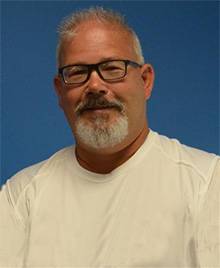
After a review of Batavia City Schools’ budget Monday evening, Business Administrator Andrew Lang asked for questions, and Board President John Marucci had a big one.
“With what’s happening with the Education Department federally, how is this going to harm us in the future?” Marucci said.
That was a question Lang couldn’t answer, he said. And he’s not alone. School district and Genesee Valley School Boards Association officials have been wondering the same thing.
Donald Trump signed an Executive Order on March 20 to close the U.S. Education Department, but that has not taken hold just yet since it requires Congressional approval and there have been legal challenges to the move. Court action and political opposition have risen against the effort to dismantle the department, and key functions remain in place for now.
“I unfortunately don’t have a crystal ball, so I wouldn’t be able to speak to that,” Lang said. “What we’ve done in this budget is attempt to protect as much as possible the programming that’s vital that’s federally funded for our district, including positions that are paid through federal grant funds and other initiatives through federal grants.
“So we’ve done as much as possible to protect that in the event that any of that funding is decreased to us," he said. “We don’t really know at this point.”
Superintendent Jason Smith added that it does not seem likely that federal funding for title and special education grants will be impacted.
“Maybe they may be managed by another department, perhaps,” Smith said. “But as far as the funding that we get to fund (positions and to meet special education goals), at this point, I’m fairly confident they’re staying intact. But we want to be extra cautious.”
As for the proposed 2025-26 budget, it remains at a tax levy increase of $451,000, or 2.22%, for about 35 cents more per $1,000 assessed property value. A home assessed at $200,000 would mean a tax rate of $16.05 per $1,000 and a property tax increase of $69.80 per year, if there is no assessment change.
The $63.3 million budget is a $3 million jump from the current year and includes the replacement of retiring personnel: six teachers, a secretary and administrator.
The public budget hearing is scheduled for 6 p.m. May 12 at the District Office of Batavia High School, 260 State St., Batavia, and the budget vote is May 20.
For the previous budget story, go HERE.

After two years at First Presbyterian Church in Batavia, the Little Free Pantry is on the move, with fingers crossed that volunteers have found a new location for their full-sized refrigerator and a shelf-stable pantry will be opening downtown this week, Jenn Noon says.
Due to circumstances beyond their control, the pantry will likely close by Wednesday, she said.
“Over the years, we’ve had to relocate several times for situations that we’re out of our control, like Birchwood Village, they went to a new property owner, and situations like this. But thanks to the support from our community, these challenges and things overall turn into just small hurdles, and our overall story,” Noon said during an interview with The Batavian. “I do have exciting news: we have an appointment on Monday to go and visit a potential new location for the fridge, so we’re hoping that that’ll be a good fit, and we’ll have an update on that next week.”
As for a second site for nonperishable goods, tea and coffee, she is working with a business owner at Batavia City Centre and “they’re totally on board” with allowing a portion of the store's front entrance to be used for the pantry, Noon said. She didn’t want to disclose the name until details have been finalized but believes it’s a great fit for that location where people congregate while waiting for a bus or getting dropped off.
“So we’re hoping to get that set up this week as well, and be able to share that soon too,” she said.
The pantry at First Presbyterian Church, on the corner of East Main and Liberty streets, has been outside. There have been some issues with people not being courteous when taking items from the site, Noon said.
“So, unfortunately, we do face challenges, things like unkind visitors that make a mess out front. It's something that little free pantries all across the U.S., unfortunately, experience issues with. We've had an issue, for example, of kids opening a bag of black beans and tossing them at their friend, because we do operate on such a low barrier method. Unfortunately, there are folks that might be in a crisis situation, or, like I said, kids and things like that. So unfortunately, there’s challenges, but we're always working on addressing those challenges and addressing the needs of the community,” she said. “Basically, the model that us and all the other little free pantries and community fridges, one of the big things that they try to reduce is what they call policing of the pantries. And it just basically means that, again, trying to reduce those barriers, a lot of folks are, there's some shame in reaching out for help. Or, you know, we have a lot of kids that stop by after school and things like that.
“We do monitor at certain points, like when we have our popups, or we do our routine down there several times a day cleaning up,” she said. “Some locations we've been able to install a camera, so we're able to monitor things a little bit more easily, remotely. That really just depends on the host of that specific location and working together with them on what works best for that spot.”
Noon and the Rev. Roula Alkhouri of First Presbyterian each said they plan to continue a partnership to work on future projects.
“We are very supportive of their efforts and mission. Their mission aligns with our commitment to serve and love our neighbors. In the last month, we have helped them purchase a new refrigerator for storing extra produce. We will continue to support them and provide hands-on assistance going forward in any way that we can, including their popup and annual events,” Alkhouri said. “While they will be missed at our church location, our care and love will continue for their work of providing food for those who need it. We believe that God works in mysterious ways, and that even in times of transition, new opportunities for service and partnership will emerge.
“We will continue to seek ways to support the Little Free Pantry and other initiatives that address food insecurity in our community,” she said. “We extend our deepest gratitude to the dedicated volunteers and supporters of the Little Free Pantry. May God bless them as they embark on this new chapter.”
The two organizations will be working together on initiatives including a maternal health and wellness effort, and “big, huge events around Christmas,” Noon said.
“It’s just the outdoor pantry wasn’t the best model for that location,” she said. “Every spot’s not a good match. We still have our location at 28 Seneca. It is open 24/7, it was our old farm stand location that we had up just during the summer. But last year at Thanksgiving we actually found a really nice structure that we were able to put up there and get that up and going.”
There are bakery items, shelf-stable goods, bicycle helmets, and warm clothing, and in the summertime, there will be produced from Ryan’s Rose Organic Farm, which has generously partnered with the pantry since the first year it opened, Noon said. The farm owner, Tom Ryan, is helping out with the pantry’s maternal health and wellness program — “he jumped right on board and is totally willing to support us, so we’re really grateful for him.”
Noon is also assisting some folks in Erie and Orleans counties wanting to open some little pantries there, she said. She has four core volunteers and partners of grocery stores, bakeries and restaurants for food donations. Some 90% of the food received would have been thrown out, she said.
“So that’s a big part of our mission, is trying to reduce food waste,” she said. “There’s a lot of perfectly good food that completely would get discarded. Otherwise, we do try to source that and bring it back to our community.”
Anyone interested in volunteering may go HERE and join the volunteer page to learn of ways to help. If you have a potential host site for a pantry, send a message through the website.
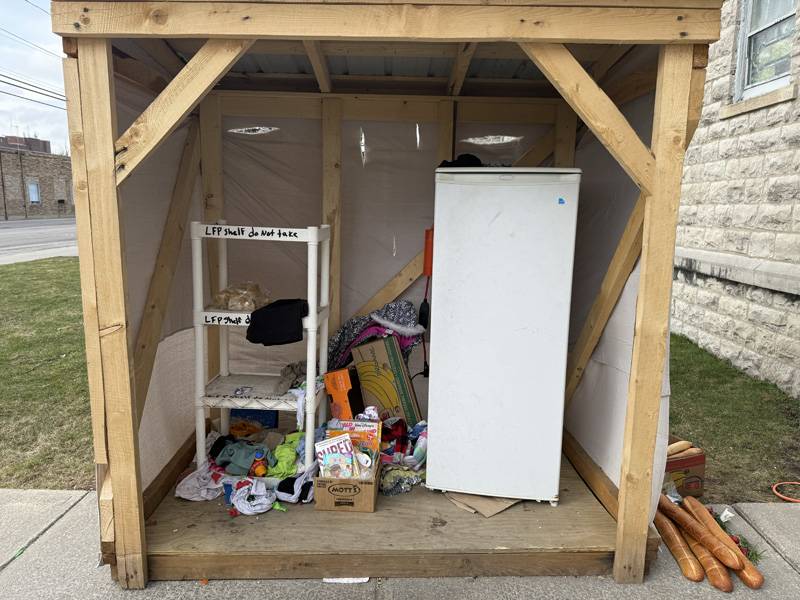
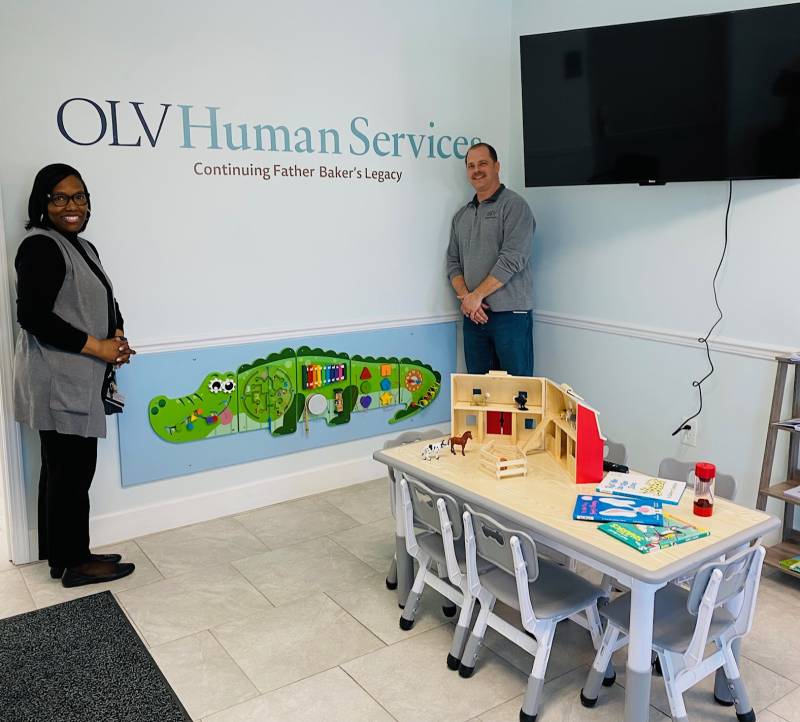
Two branches of Erie County-based OLV Human Services have chosen to widen their scope and settle into Genesee County under one roof to offer counseling, evaluation and treatment for children and adults.
One is the OLV Outpatient Counseling Clinic with each a part-time and a full-time clinical therapist and a psychiatric nurse practitioner, Chief Program Officer Sheila Hunt said.
“We wanted to expand into five different counties; we’re already in Erie and Niagara County. Genesee just made the most sense. So when we saw that this facility was for rent, we came out and took a look at it, and it just made the most sense for us to start here first, because it was perfect. It had this perfect setup for our operation clinic, and then it had the perfect setup for our evaluation and treatment clinic,” she said of the site at 5762 Route 5 in Stafford. “This is the first time we ventured out to a county outside of Erie County. So this is the first one, but we're not stopping here. Once we get this up and running, our strategic plan is to be known as a behavioral health provider, so we're going to keep forging ahead. There's a need, and we just want to help be a resource.”
Therapists will provide services for individuals and families for a variety of issues, including addiction, ADHD, depression, anxiety, sleep problems, domestic violence, grief, and psychosis, and are open to group sessions if there are appropriate numbers of individuals to form a group, Hunt said.
The nurse practitioner is licensed to do medication management, and most insurances are accepted, she said. All it takes is for the person, or a parent or teacher for a child, to refer for services, Hunt said. If someone doesn’t have transportation, OLV has a contract with a social care network and may be able to arrange for an Uber, she said.
“We support, prepare and empower the individuals that we work with,” she said. “We're not trying to come and take over, we just want to be an added resource to the providers that are currently out here.”
OLV has four brick-and-mortar offices and six satellite locations in Buffalo public schools, with plans to expand — possibly into Wyoming County next — as part of its strategic plan, she said.
Counseling services will begin on April 15. Hours for appointments will be 8:30 a.m. to 5:30 p.m. Tuesdays and Thursdays, 8:30 a.m. to 6 p.m. Wednesdays and 8:30 a.m. to 4:30 p.m. Fridays, with 9 a.m. to 1 p.m. Saturdays up for consideration if there’s a need for a weekend day. Eventually, the site will have Open Access, which will be available for walk-in appointments.
For more information or to make an appointment, call 716-828-7456 or go to Outpatient Counseling Clinic.
A second practice is the Evaluation and Treatment Center for kids aged 2 to 21 with any type of intellectual, developmental or learning disability. A staff of eight includes a medical director/pediatrician, psychologist, nurse practitioner, licensed behavioral analyst, behavioral technician, and occupational and speech therapists, Clinical Services Supervisor Chris Nalbach said.
“This is our first site branch. We just opened in Lackawanna in April 2024, so we’re already looking to kind of expand since then. We got a great opportunity to utilize this space in a different region that we haven’t been able to reach before,” Nalbach said. “We talked to some people at University of Rochester and (other practices), that stated that services were needed in this area as well.”
Hospitals and medical facilities across Western New York can have waiting lists up to two years long, he said, which is time that a child could be receiving treatment. Anyone suspecting his/her child of having any type of learning/developmental disability can fill out the center’s intake form and have the child evaluated and/or tested, he said.
“We look for autism, ADHD, or other types of disorders that we can evaluate and treat, and once we have a good diagnosis completed, we can move on to the therapy from there and whatever it takes to get the kids the services they need to provide it, and if not, we can refer to other places that would be able to.”
They will recommend a course for treatment, including an intense Parent-Child Interaction Therapy. There seems to be more autism, but it’s not so much that there are more cases of autism, he said, as there are more diagnoses of it — and more quickly and correctly than in the past.
There used to be about one in 150 diagnosed 20 years ago, he said, and now it’s one out of 36, according to ETC’s website. Staff is committed to “providing another option for families to help reduce these wait times and allow children to get the help they need as soon as possible.”
When working with children, no one is usually looking for those huge leaps and bounds, he said, but instead for incremental steps.
“There’s no cure for autism; it’s an improvement in functioning, things of that nature,” he said. “We’re really not looking at the massive success rate. We’re looking at the tiny little successes. If you look at the parents, when they look at their child and see that their child can talk back and say ‘Hi mom,’ that’s a huge success.”
The Stafford location will be opening later this summer on Mondays, and possibly also on the first and third Saturdays. For more information, call 716-828-7586 or go to Evaluation and Treatment Center.
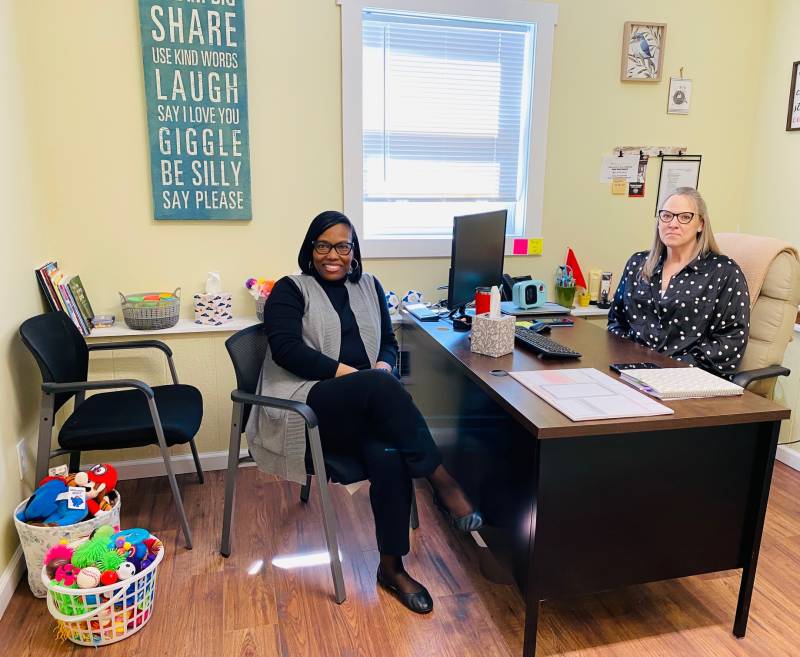
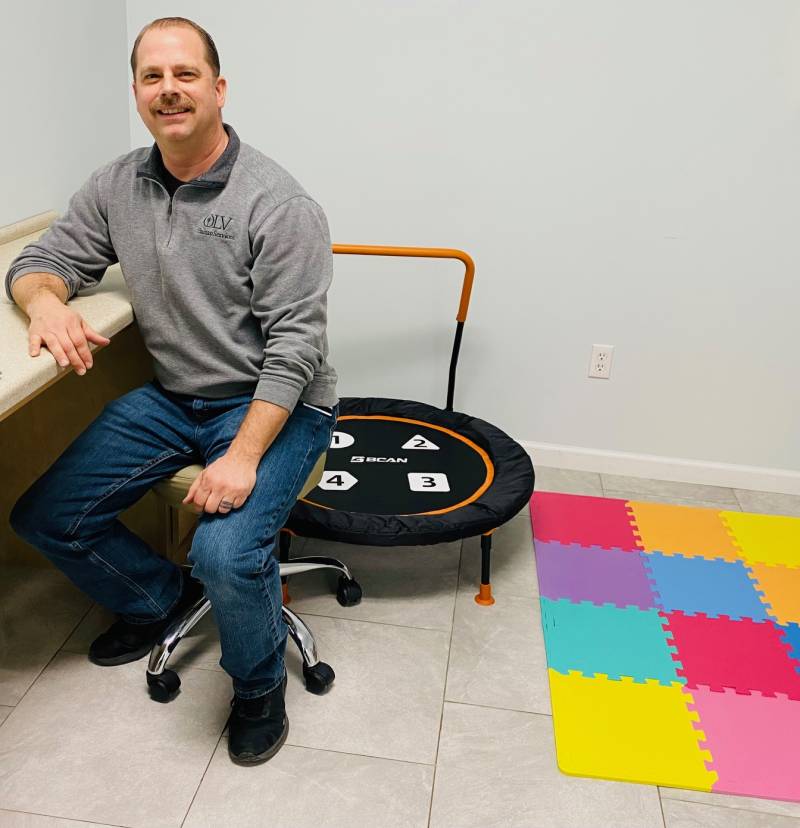
Copyright © 2008-2022 The Batavian. All Rights Reserved. Privacy Policy | Terms of Service